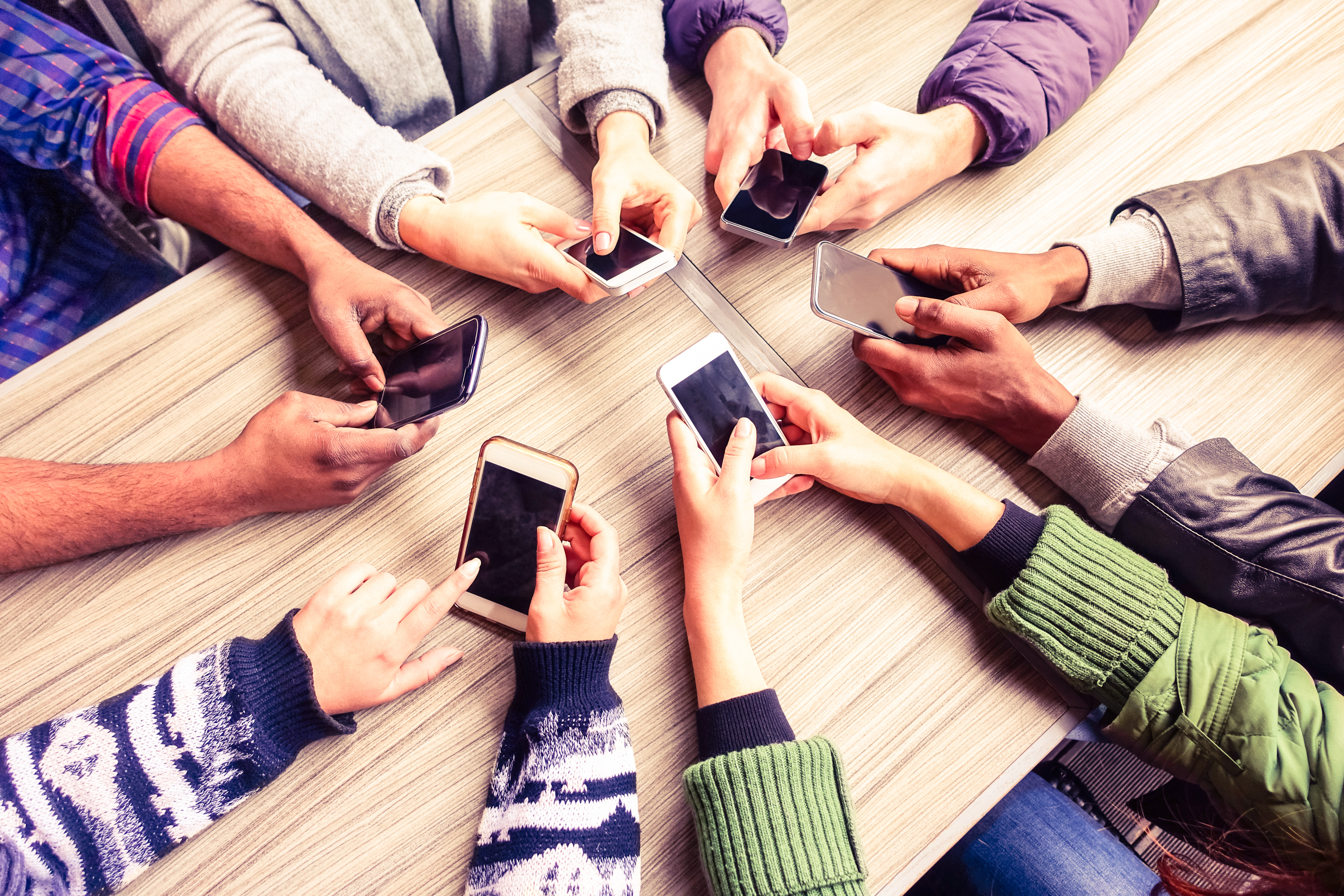Being a teen is hard enough. Being a teen in 2019 is even harder.
Not only do you face normal teen pressures like studying for the SATs and asking your crush to prom but you have the added pressure of staying connected with family and friends 24/7 through social media.
A recent Pew Research Center study found that 95% of teens now report they have a smartphone or access to one and 45% of teens say they are online on a near-constant basis. In addition to Facebook (which 51% of teens report using), the study found that YouTube, Instagram, and Snapchat are the most popular online platforms among teens.
Social Media is Designed to Keep You “Addicted”
First things first, let go of any negative judgements you might have around social media addiction. There is nothing wrong with you. Apps like Facebook and Instagram are designed to be addictive and keep you scrolling. The fact that you get a rush of excitement when someone “likes” your photo is 100% normal and exactly what these apps want you to feel.
Where things get tricky is if you start counting on social media to feel good about yourself, avoid your true emotions, or compulsively compare yourself to others.
“In my ongoing work with teens and their social media use, I work on helping them explore the relationship between their mood and their use of technology,” Rachel O’Neill, Ph.D. LPCC-S, and Ohio-based Talkspace therapist, said. “How do they feel after being online for a period of time? If it seems as if constant imagery of other people’s seemingly perfect lives is impacting their mood, it can be a good opportunity to think about re-evaluating the individuals that you’re following and/or interacting with.”
For O’Neill, there are healthy ways to use social media and unhealthy ways. “For example, it can be great to explore fitness and health on social media, but if constant imagery of fitness models is impacting your own self-esteem, it might be time to take a step back,” O’Neill shared.
“We also know that those with low self-esteem appear to be at greater risk for developing social media addictions in the first place, and so constant comparisons to other people may only serve to reinforce this low self-esteem.” In other words, if you’re already prone to comparing yourself with others and don’t feel great about yourself, it may be better to avoid or adjust your limits on the sites.
How Do I Know If I Have A Phone/Social Addiction?
While phone and social media dependence may not be as severe as some other addictions, they can still be serious. “By definition, an addiction is a pathological behavior with a process or a substance,” O’Neill said. O’Neill finds that teens with a phone/social addiction may experience:
- Anxiety
- Depression
- Lack of impulse control
- Loneliness
- Symptoms of numbing
“Because adolescents are still developing cognitively,” O’Neill explained, “these symptoms may be more intense and more pronounced than they are in adults.”
According to Dr. O’Neill, there are a few warning signs to look out for if you are worried about yourself or a friend has a social media addiction, including:
- Increasing amounts of time on sites (often, at the expense of other activities or interests)
- Urge to use social media at school or at work (despite potential negative consequences of doing so)
- Preoccupied with being online
- Feelings of annoyance or frustration when you are unable to go online
Turning FOMO Into “JOMO”
I remember feeling a lot of FOMO (fear of missing out) when I was a teen. I felt left out of social groups, made fun of for being too nerdy, and taken advantage of for my niceness. While I still experience FOMO as an adult, I’ve been trying to focus my attention on JOMO (joy of missing out) instead.
Here are five questions to help turn your FOMO into JOMO:
- What friendships make me feel like the best version of myself?
- What extracurricular activities feel fun to me?
- When I feel sad that I wasn’t included in something, what will help me to feel better?
- What is going well in my life that I can celebrate?
- How is this experience helping me understand more about myself?
While it can feel like you are the only one struggling to put your phone down, eat a meal device-free, and avoid mindless scrolling, take comfort in the fact we are all trying to figure this out. Social media preys on our deep-rooted desire for connection. Stay strong. Take breaks. And remember that even celebrities don’t have all their stuff together when it comes to their phones and social media.
Originally Published on Talkspace.
More From Talkspace
Anxiety Attack vs. Panic Attack: Which One Are You Having?
Dealing With Depression: What You Need to Know
What Is a Therapist [Psychotherapist]? – The Complete Definition
Follow us here and subscribe here for all the latest news on how you can keep Thriving.
Stay up to date or catch-up on all our podcasts with Arianna Huffington here.


